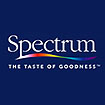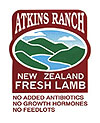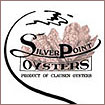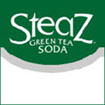Anti-fast food fair spreads epicurean
revolt
By
Mathias Wildt
TURIN, Italy, Nov 6 (Reuters Life!) -
Carlo Petrini was so incensed when a McDonald's
outlet opened next to the Spanish Steps
in Rome, he launched an "epicurean
revolt."
That was two decades ago. Today, that
revolt has gone global through Slow Food,
the international movement he founded
to challenge the spread of fast food.
Slow Food, which hosted its sixth annual
"Flavor Fair" in Turin in late
October, promotes the production of traditional,
quality food in an environmentally sound
way.
"Eating is an agricultural act,"
Petrini said. "Choosing quality food,
produced respecting the environment and
local traditions, can protect biodiversity
and a fair and sustainable agriculture."
It's a message that resonates today as
consumers become increasingly concerned
about man's effect on the planet, be it
through climate change or the destruction
of natural habitats.
The United Nations says food production
is the major cause of pollution and destruction
of ecosystems because of the massive use
of chemical pesticides and fertilizers.
All of the delicacies on show at Slow
Food's fair in Turin -- including Peruvian
potatoes, vanilla from Madagascar and
Himalayan pink salt -- were organic, produced
without synthetic fertilizers, herbicides,
or hormones.
The taste fair brought together over 600
producers from around the world: Andean
Indians wearing black hats and bright
woolen vests displayed their wares alongside
women from Mali in traditional cloth dresses,
a farmer from Montana wearing a Stetson
and Dutch cheese makers in straw hats.
From its origins as a personal crusade,
Slow Food now has around 85,000 members
in some 130 countries. They meet to educate
people about eating well and to promote
the understanding of how food is grown
or raised through visits to producers.
They also meet for dinners, of course.
LINKING PLATE AND PLANET
Slow Food's Web site describes its philosophy
as "eco-gastronomy - a recognition
of the strong connections between plate
and planet."
Petrini says the movement, which has a
snail as its symbol, is a rebellion against
"the virus of fast life, which forces
us to eat fast foods."
"Man invented the machine and then
took it as a life model," said the
sociologist who used to write restaurant
reviews.
Slow Food has published books and founded
a gastronomy university with officially
recognized degrees in Petrini's hometown
of Bra in northern Italy.
It has also evolved from promoting a life
of sybaritic enjoyment to educating consumers
so they can become "co-producers"
and so affect the way food is produced
through their everyday shopping choices.
The fair, which attracted more than 150,000
people over five days, showed the progress
already made by Slow Food's push to create
demand strong enough to affect the way
food is produced.
Italy's Modena white cows -- which risk
extinction -- are making a comeback as
customers get to know and appreciate their
richer Parmesan cheese, which was on display
in Turin.
Albenga's purple asparagus, grown on only
10 hectares (25 acres) in the Ligurian
town of that name, is surviving thanks
to Slow Food's marketing.
At the other end of the scale, Italy's
second-largest pasta maker, De Cecco,
said at the fair it would start selling
pasta made with Kamut, an Egyptian cereal
with a third more protein and vitamins
than the normal durum wheat used for pasta.
For Alessio Follone, 25, from Salina,
an island north of Sicily, the fair offered
a chance to promote hotels and boat rides,
as well as the volcanic island's famous
capers.
"I'm here to sell the island as a
whole," he said.
Alongside the taste fair, Slow Food brought
together 5,000 food producers from around
the world to take part in a meeting called
Terra Madre, or Mother Earth.
"They represent 1,700 communities,
millions of people," Petrini said.
"To the evils of globalization, we
respond with Terra Madre: a virtuous global
network to strengthen local economies
and local production."
The producers form an informal network,
and meet to exchange ideas and techniques
and to share problems.
Slow Food aims to expand Terra Madre over
the next two decades, but wants to keep
its light, ad hoc structure.
"We should not become giants,"
Petrini said. "We should remain a
small organization fostering a democratic,
autonomous network of producers and co-producers."











